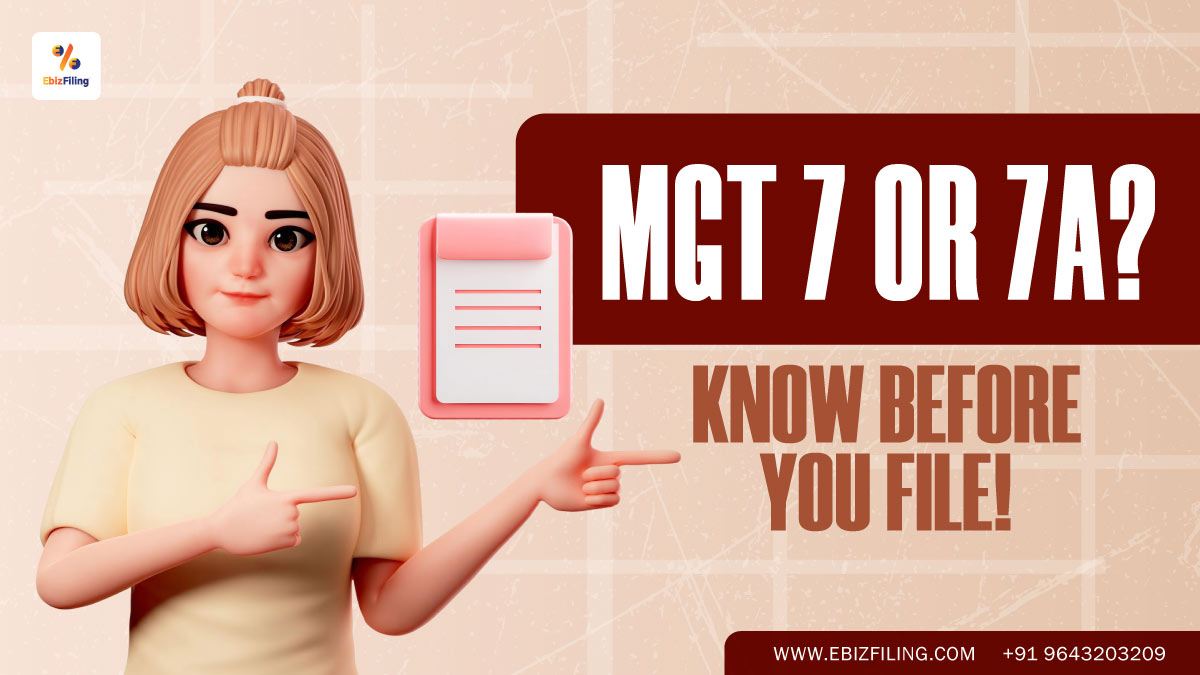What is Form MGT-7?
Form MGT-7 is an electronic form mandated by Section 92 of the Companies Act, 2013. It serves as the annual return that companies file with the Ministry of Corporate Affairs (MCA). This form gives a comprehensive overview of the company’s status at the end of its financial year, including:
- Basic company information (such as its Corporate Identification Number, name, and registered office address)
- Main business activities
- Details of directors and key managerial personnel
- The company’s shareholding structure
- Information on its debts
- Remuneration paid to directors and key management staff
- Any penalties or legal cases the company might be involved in
Filing MGT-7 is generally compulsory for almost all companies, with a few exceptions that we’ll cover later.
What is Form MGT-7A?
To ease the compliance burden for smaller entities, the MCA introduced Form MGT-7A in 2021.This is a streamlined version of MGT-7, specifically designed for small companies and One Person Companies (OPCs).While it covers similar ground to MGT-7, it demands less detailed information, simplifying the annual filing process for businesses with fewer complexities.
Who Needs to File MGT-7 and MGT-7A?
The type of form a company needs to file depends on its nature and size.
Applicability of Form MGT-7:
- Private Limited Companies (unless they qualify as small companies or OPCs)
- Public Limited Companies
- Section 8 Companies (non-profit organizations)
- Producer Companies
- Foreign Companies operating in India
Essentially, if a company isn’t a small company or an OPC, it needs to file MGT-7.
Applicability of Form MGT-7A:
- Small Companies
- One Person Companies (OPCs)











December 17, 2025 By Steffy A
Private Limited Annual Filing: Notes and Documents Checklist Important Notes for Private Limited Annual Filing The professional fees mentioned are exclusive of penalties and taxes, if any. DPT-3 (Return of Deposits) is not part of the standard package, as applicability […]
December 17, 2025 By Dhruvi D
OPC Compliance: Annual Filing Notes and Document Checklist with Ebizfiling At Ebizfiling, we help One Person Companies (OPCs) in India meet all MCA annual compliance requirements like AOC-4, MGT-7A, DIR-3 KYC, and DPT-3. Our team tracks deadlines, files forms accurately, […]
November 22, 2025 By Dhruvi D
Why OPC Filing Deadlines Catch Founders Off Guard in India? Introduction OPC filing deadlines in India often catch founders off guard. Strict annual compliance requirements ensure an OPC’s legal status, and missing these deadlines can lead to heavy penalties or […]